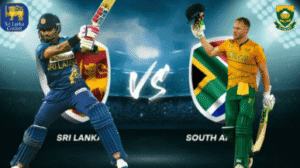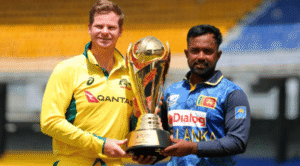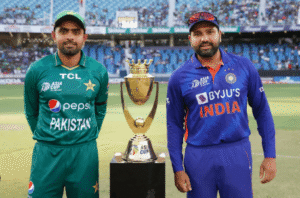In the world of sports, much of the focus is on the athletes—their talent, skill, and achievements on the field of play. However, behind every game, match, or competition, there are unsung heroes who play a crucial role in ensuring fair play and upholding the integrity of the sport: sports officials. These dedicated men and women, often overlooked and underappreciated, are the ones who enforce the rules, make split-second decisions, and maintain order amidst the chaos of competition. In this exploration of the life of sports officials, we delve into the challenges, responsibilities, and rewards of officiating, shining a spotlight on the individuals who play a vital role in the world of sports.
The Call to Officiate:
For many sports officials, the journey begins with a love for the game and a desire to give back to the sport they love. Whether they were former athletes themselves, passionate fans, or simply drawn to the excitement and camaraderie of sports, the decision to become an official is often driven by a deep and abiding love for the game. Some officials are drawn to the challenge of making split-second decisions under pressure, while others are motivated by a desire to contribute to the sport and help ensure fair play and sportsmanship. Whatever their reasons, sports officials play a vital role in the world of sports, providing an essential service that is often taken for granted.
The Challenges of Officiating:
Officiating is not for the faint of heart—it requires a thick skin, quick thinking, and the ability to remain calm under pressure in the face of intense scrutiny and criticism. Sports officials must be prepared to make split-second decisions in the heat of the moment, often with little margin for error. They must also be able to handle confrontation and conflict, as emotions run high on the field of play and tempers can flare at any moment. Despite these challenges, sports officials are expected to maintain impartiality, integrity, and professionalism at all times, ensuring that the rules are enforced fairly and consistently for all participants.
The Rewards of Officiating:
Despite the challenges, officiating can be an immensely rewarding and fulfilling experience for those who choose to pursue it. For many officials, the thrill of being in the middle of the action, the sense of camaraderie with fellow officials, and the satisfaction of knowing that they are contributing to the sport they love are rewards in themselves. Additionally, officiating can provide opportunities for personal growth and development, as officials learn valuable skills such as communication, decision-making, and conflict resolution that can be applied in all areas of life. For some, officiating may even open doors to new opportunities, such as coaching, mentoring, or leadership roles within their sport’s governing body.
The Importance of Training and Development:
Like athletes, sports officials must undergo rigorous training and development to hone their skills and stay at the top of their game. Many officiating programs offer comprehensive training courses, workshops, and certification programs to help officials learn the rules of the game, improve their judgment and decision-making abilities, and stay up-to-date on the latest developments in their sport. Ongoing education and professional development are essential for sports officials to maintain their competence, integrity, and credibility, ensuring that they are equipped to handle the demands of officiating at any level of competition.
The Future of Officiating:
As sports continue to evolve and grow in popularity, the demand for qualified officials will only continue to increase. However, attracting and retaining new officials can be a challenge, as the demands of officiating can be demanding and the rewards may not always be immediately apparent. To ensure the future of officiating, sports organizations must invest in recruitment and retention efforts, provide opportunities for training and development, and create a supportive and inclusive environment for officials at all levels of the game. By recognizing the vital role that officials play in the world of sports and providing them with the support and resources they need to succeed, we can ensure that the legacy of officiating continues for generations to come.
Conclusion:
Sports officials are the unsung heroes of the sporting world, playing a crucial role in ensuring fair play, upholding the integrity of the game, and promoting sportsmanship and respect among athletes and fans alike. Despite the challenges they face, sports officials are driven by a deep passion for the game and a desire to give back to the sport they love. Through rigorous training, ongoing education, and unwavering professionalism, sports officials ensure that the games we love are played with integrity, fairness, and respect for all participants. As we celebrate the athletes who compete on the field of play, let us not forget the dedicated men and women behind the whistle who make it all possible.












Post Comment